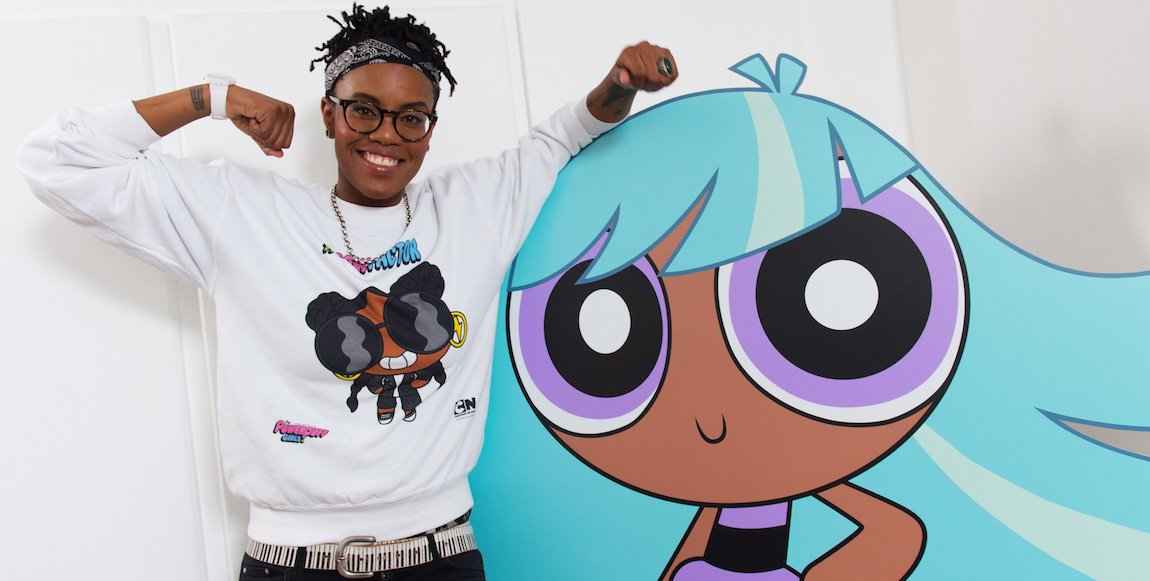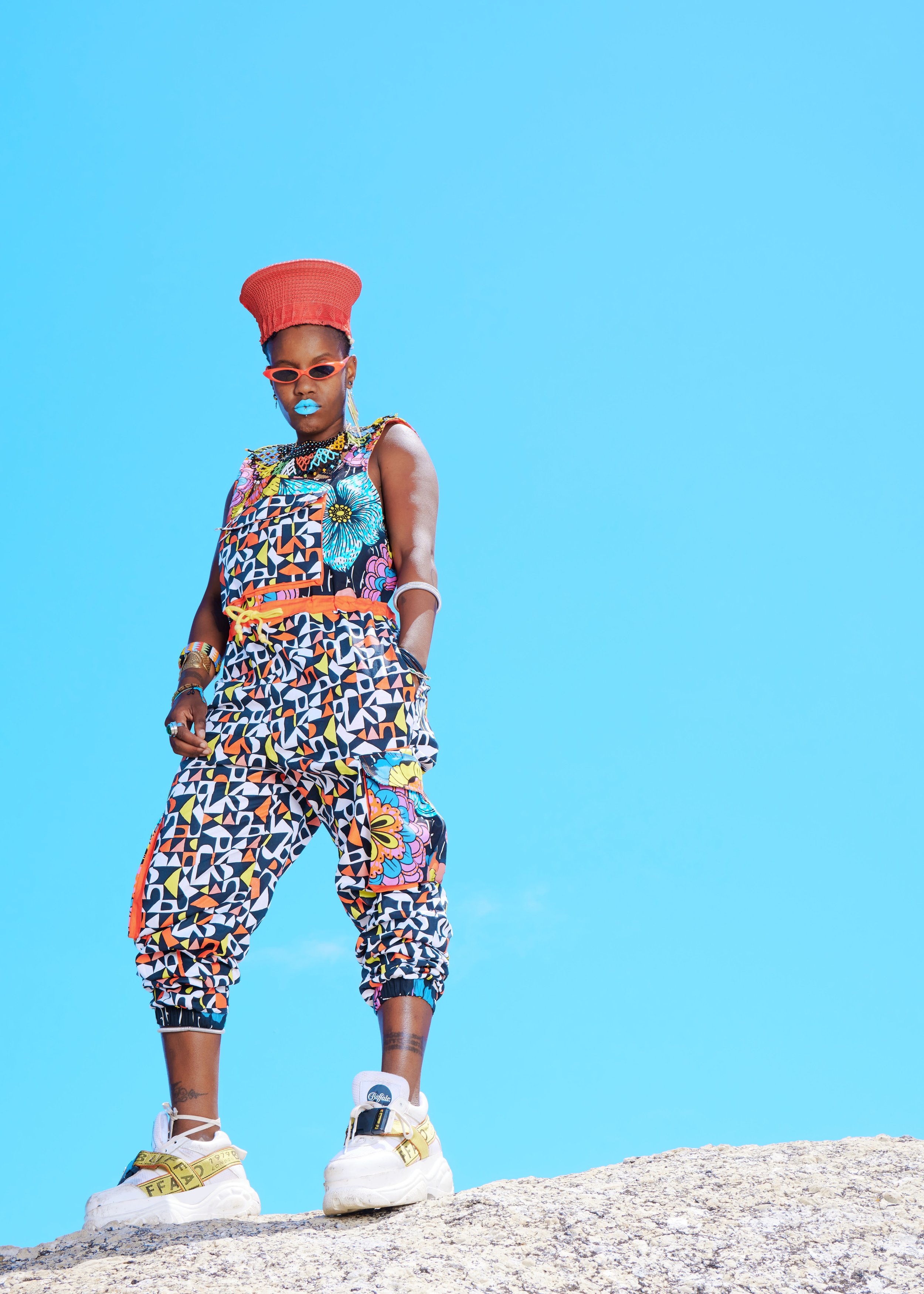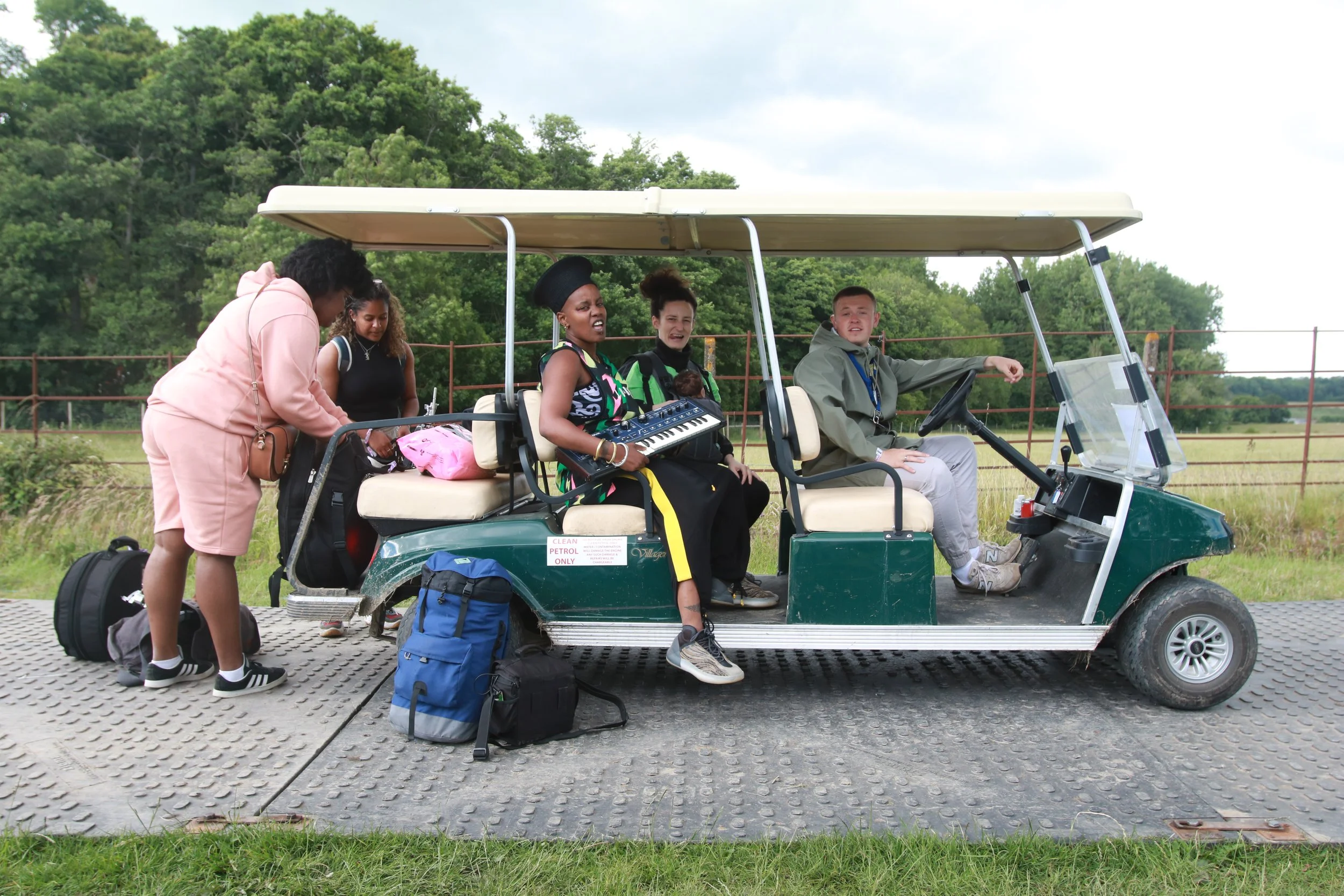Toya Delazy is the Mother of Afrorave
Afrorave, the genre founded by Toya Delazy, has been appropriated by a major male Afrobeats artist in Nigeria. Multiple media sources, including the Rolling Stone magazine have misreported the story; claiming him to be the founder.
This is all despite the fact that Toya’s Afrorave has been covered by publications like the BBC, GQ Magazine and the Independent newspaper, had a cover story with Beatport and won Boiler Room music video of the year.
In this interview, Toya reflects on the deeply personal, political significance of Afrorave; the implications of misrepresenting and erasing culture, and how we should capture the spiritual energy found on dancefloors and put it back into the music industry to move forward with greater integrity.
In 2019 MC, DJ, producer and dancer Toya Delazy founded Afrorave: her internationally acclaimed, multi-award-winning genre that fuses indigenous isiZulu lyrics and ancestral aesthetics with contemporary UK and South African club sounds. “It celebrates our indigenous languages in a rave”, she told GQ Magazine, “reconnecting us to our culture and to others.” Having lived in both London and South Africa, Afrorave is, what she told The Independent newspaper, “my biography in musical form”.
Born and raised in KwaZulu-Natal, Toya is the granddaughter of Chief Mangosuthu Buthelezi and the great-granddaughter of Africa’s first recorded indigenous composer, Princess Magogo. She was also a classically trained pianist from the age of 9. After being scouted in 2011 by Sony Music performing in a local Durban pub, Toya’s raw energy and talent quickly earned her household name status across the continent.
As well as tallying up an impressive list of chart-topping hits and international awards, she became a Unicef Africa and a Reebok brand Ambassador; featured as a coach on ‘The Voice’ South Africa and even became the voice of the 4th ‘PowerPuff Girl’ on Cartoon Network!
Photo by RICHARD HANSON
But by 2017, Toya found the celebrity lifestyle wasn't connecting with her authentic self, so she moved to the UK with her partner to embark on a new spiritual path; resurrecting in London as an independent artist. “I found so much power in my pre-colonial African history and it inspired me to share my culture with others and its energy through rave”, she told Chapter Z Magazine.
Since Toya founded Afrorave in the UK, she won Boiler Room Music Video of the year and got a cover story with Beatport. Toya’s curated playlists for the BBC and Soundcloud, had her Afrorave album launch covered by platforms like GQ, and Unlabelled Mag; had her fashion style covered by Fred Perry and spoken on her identity as a Black, Queer woman to the The Independent to name a few. Throughout her time in London she’s collaborated with the likes of Jammz Supernova, Lady Lykes, Scratcha DVA, Denham Audio, LR Groove, Tash LC and Ahadadream. And she’s performed Afrorave at shows like UK Black pride; All Points East, Bristol Pride, El Dorado Festival; Nandos Sound Exchange with Little Simz, Africa Express and Sofar Sounds.
Despite all of Afrorave’s major critical acclaim and coverage, her entire genre has recently been appropriated by a Nigerian male Afrobeats/Afropop artist. This artist is signed to one of the biggest record labels in the world (Ever heard that song Dumbei?) And the story has been mis-reported by some of the world’s biggest music magazines, including the Rolling Stone who have claimed in their headlines he invented Afrorave.
In this interview, Toya reflects on the ethical responsibility and implications of music journalists reporting on cultural movements. She explores what is so inherently personal and political behind her genre Afrorave; the healing power of drums, and how we should all embody a spiritual mindset to move forward with greater integrity and authentic collaboration within the music industry.
Hey Toya! What’s Afro rave?
On one hand, it’s about finding other avenues of expression when it comes to language. It allows indigenous languages - specifically Zulu - to express in rave genres what you wouldn't usually hear in any of those languages. It's becoming almost a movement, but at its core, it's a genre.
Culture shouldn't be lost. History shouldn't be lost. Languages are literally dying out.
“In most countries, it’s not a priority for schools to teach indigenous languages. Afrorave is a place of expression for those languages”.
And it's fun. I love sharing even the vernacular parts of the culture, like the clicks and getting my mates into that!
On the other hand, I was finding my own footprint in music. I kept reinventing so many times until I found this, a way to rave while holding and sharing a piece of my culture.
I always find ways to express whatever I'm going through. I’m currently in London, where there’s a lot of Jungle, Drum and Bass and techno. It just worked so well tying that into Zulu drums - which are also often at 175 beats per minute!
But it goes deeper than that. It feels like there’s a big connection with my ancestors that comes out naturally with rave music. Ravers will understand how drums can take you to a different plane. When you’re right in those drums, it’s almost an out of body experience. I've felt the same when writing these lyrics. As the music's going, the words come to me. It feels like it's ancient, or maybe it's just me tapping into different parts of myself I didn’t know.
“It feels like there’s a big connection with my past and my ancestors that comes out with rave naturally”.
AfroRave is also very much a visual art form. How do they tell your story?
In Resurrection, you see my head coming out of a shallow grave. And we were doing ancient traditional dances as well. The metaphor is about being buried by society and not being yourself. Resurrection is about overriding those narratives and being yourself… fetching your life boo!!
“I take a lot of influence from traditional African attire and traditions, I want to show and remind people about them”.
When it comes to our religion for example, people don't want to talk about Voodoo and Hoodoo, because everyone thinks it's bad.
But the more I looked into it, the more I learnt it’s about alchemy, nature and an esoteric connection with the universe. When you look at history, that all got destroyed with people being called witches. We lost a lot of ourselves then and a lot went to Christianity during colonization. But Christianity has its limits, because as Africans we are not monotheists.
It’s been crazy to unravel and rediscover, to be conscious again. I’ve been taking all the good bits of our culture and using it in this range of expression through Afrorave.
Your art is totally unique but there is something universal about it. It speaks to people. What are some of the challenges that you faced with Afrorave?
Well, being indie and getting the correct funding is not easy. When you end your contract with the majors, then they tend to see you as competition.
You’ll get opportunist artists that are with majors who will bite you at your craft and stuff like that.
“It’s the sea out there and I've had to go through a few attacks. Where people literally take the name of your art and credit themselves”.
What advice do you have for up and coming artists to avoid this? We hear stories like this time and time again.
We've got to get business-minded around it. Because at the end of the day, it's a business world and we have to protect ourselves. If you have an idea that you really care about, trademark it, document everything, register your business. And if you see somebody biting your art, speak about it.
What’s been the role of your music support network?
When I was younger, I'd probably have exploded online. Now I also go to a lot of my mates like, People like Scratcha DVA, Jamz Supernova. You have to have people that are in your team that know you, even your producers.
I found out from my friend, a fellow producer, that Afrorave was being appropriated by another artist signed by a major label. He was like, Yo, bro, who dis? And linked me to the page. And I was like, oh, my God, you know? So talk about what you're doing.
If you haven’t found out who you are yet, just keep doing you till you do. And when you do, tell people, the people that you create with, so that everyone's clear about who you are.
What do you want to see more of from the media and music journalists in preventing these issues?
They need to know their music and be in underground spaces!
“Culture is harmed by journalists who don't do their research. It’s very easy to disrespect, appropriate or erase entire movements”.
If you say Amapiano was created in Nigeria, for example, that's messing up an entire history, the erasure actually, erasure of the entire South.
And also they can’t just be writing about the biggest guys. If it resonates, it must be given a chance. Both artists and the public depend on music journalists to represent the scene and to know what's happening. We need to bring integrity back to reporting.
How can we all move forward into a better world in the music industry?
Art for me has always been about connection not competing against each other. It’s about humanity working together, and that's what's missing, no matter how successful we get. If people could just remember the real. Be open to connect with smaller artists.
Afrorave is a really unique expression reflecting how I’ve grown up. Everybody can have that if they can tap in and do the work. And not steal. There’s enough space!
“Art should not be about trying to dominate the audience, we should be moving with them”.
We should move together as this wave, this wave of ecstasy and transmutation.
That's what I see in my head when it comes to music. If we just returned to that, I think it would be much clearer for everybody.





